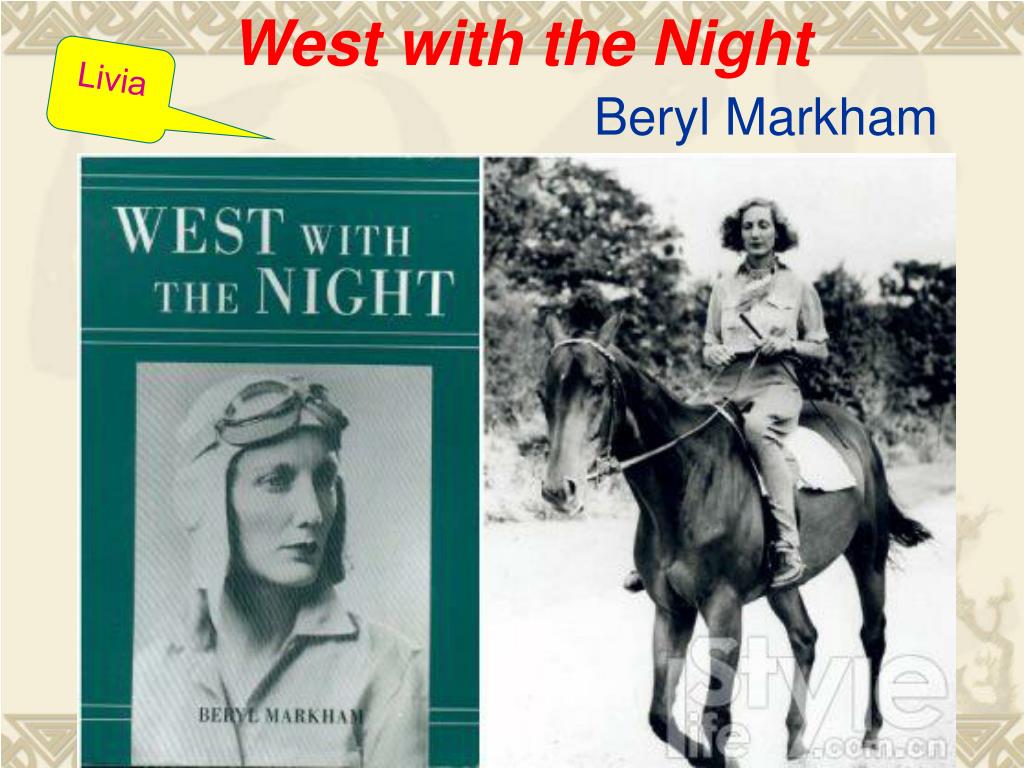
During World War I, she was sent away to a proper English school in Nairobi, but she felt out of place there. In a few years, when the farm was settled and a western-style house had been built, Beryl's father brought in tutors for her formal education. Africa is many things to many people of many races, but a child nurtured on its red inhospitable soil carries those lessons forever." The grace, the strength of her backward stretched arm manifested all the simplicity and ease of a cave painting.

She had learned to straighten her arm in a backward arabesque, as if to hurl a javelin, sending out a thrust to impale. She could hurl a spear just as well as Kibii, with deadly accuracy. When Beryl reached her full height, she was nearly six feet tall.Įrrol Trzebinski, in The Lives of Beryl Markham, wrote "All Beryl cared about was competing with Kibii. One of these games was to jump as high as one's own height. Because of her unique status in the tribe, Beryl wasĪllowed to train as an equal in games of skill with the boys. Beryl's father trained them both to ride horses like cavalry cadets, while Kiibi's father trained them to hunt and track. She became friendly with Kibii, a boy of the tribe. As a result, she spoke Swahili like a native. Neighboring tribesmen provided care for Beryl while her father worked the farm.

Her mother attempted pioneer life for a year before returning to England with Beryl's brother, who was old enough to require formal education. Beryl was three when the family moved into a traditional African mud hut. Her father moved the family to Njoro, Kenya (then British East Africa) to establish a farm. Her parents, Charles and Clara Clutterbuck, were English gentry who kept horses and won prizes locally for their skill in the sport of fox hunting. Beryl Markham (1902-1986), raised by her pioneer father in Africa, trained race horses, worked as a bush pilot, and was the first to fly solo across the Atlantic, from east to west.īeryl Markham was born in Ashwell, Leicestershire County, England on October 26, 1902.


 0 kommentar(er)
0 kommentar(er)
